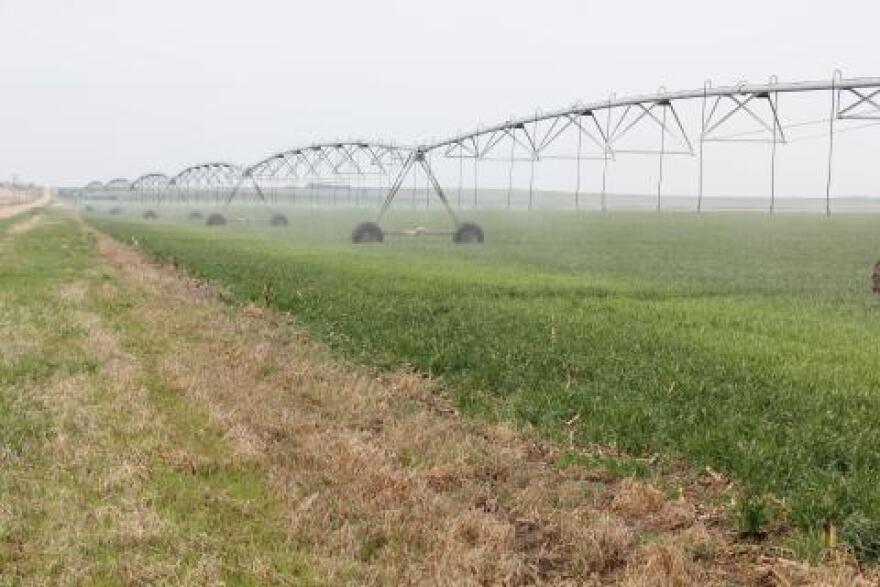Water levels within the Ogallala Aquifer, a wide source of groundwater in western Kansas, have been declining to dangerously low levels for the past few years.
In a conversation with Gina Kaufmann on Central Standard, Mark Rude, the executive director of Southwestern Kansas Groundwater Management District Number 3, said that 94 percent of the water in the aquifer is used by farmers to irrigate their land. Because the economy of western Kansas relies on water-dependent crops, scientists and political leaders are discussing possible solutions to sustain the agriculture of the region with little or no water from the aquifer.
Missouri River aqueduct
A 1982 study conducted by the U.S. Army Corps of Engineers proposed using excess water from the Missouri River to create a lake that could pump water into western Kansas through an aqueduct. Although it was originally dismissed, the study has recently been redeveloped and proposed as a possible solution to the region's water needs.
"You're simply recognizing that there's a lot of water in one place and there's a real need for water in another place," says Rude, a driving force behind the proposal. Rude cites the Central Arizona Project, a similar successful model, as evidence that the Missouri River aqueduct could be an effective solution.
Critics have claimed that the benefits to other states that control the Missouri River would be minimal. Although the aqueduct could divert flood waters, the amount would have almost negligible effects down stream, and the Army Corps of Engineers may not have the resources to shift away from other flood control projects.
Current projections claim that the aqueduct could cost as much as $25 billion, a price tag that many say outweighs the benefits.
Dry land farming
A shift to dry land farming has been proposed as a possible recourse to constructing the costly aqueduct. Crops such as corn and ethanol, currently the major business in western Kansas, are water dependent, but wheat can grow with less water. As the aquifer dries out, some believe that farmers will adapt to changing water levels by producing dry land crops.
Mark Rude argues that a shift to dry land farming would cause a reduction in crop profitability and land values for the families in western Kansas. Rude says the effect on the local and national economies could be "vast and tremendous."




